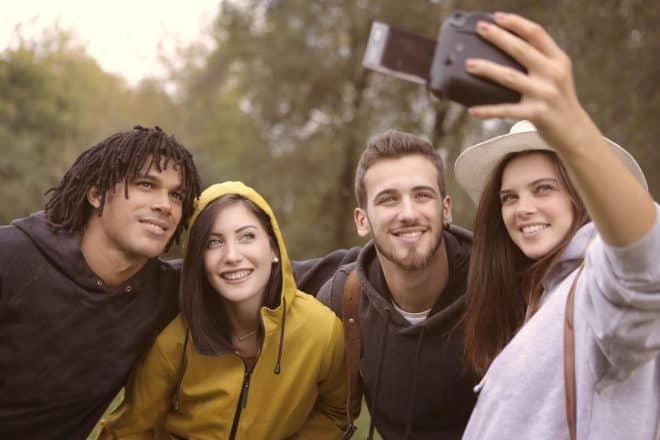Here’s a look at your social self, what it means, and why it makes a difference in your life.
Consider a typical day. You might interact with family members, friends on social media, have a meeting with a boss or co-worker, and talk to someone you’re interested in dating. All of these moments, and how we feel about ourselves during them, make up our social self.
Social self refers to how we perceive ourselves in relation to others. It involves relationship building, empathizing, and communicating. A healthy, or not so healthy, social self will also impact your overall mental wellbeing and ability to meet life goals. That’s because much of our world is social and involves interactions with others.
Social self is one of the subcategories measured in the Mental Health Million MHQ (Mental Health Quotient). Here’s a look at some things a person with a positive social self might experience:
- A healthy sense of self worth including body image.
- Strong connections and emotional bonds with friends and family.
- Satisfaction and enjoyment with physical intimacy in relationships.
- An ability to effectively and appropriately communicate with people verbally and nonverbally.
- Empathy and understanding of other people’s perspectives.
Consider the many areas of life these skills can help with. If you feel more confident, you’re more likely to initiate a relationship, interview for a job, or take on a new life goal. Feeling comfortable with emotional connections and intimacy can improve relationships and decrease stress and feelings of insecurity. This confidence may also help you set boundaries, stand up for yourself, and ask for help when your needs are not met.
See related post: Understanding Mood & Outlook.
What About My Score?
A higher social self score on the MHQ reflects higher contentment with ourselves and our ability to thrive in the world. Those with high scores can stay the course, being attentive to themselves and others, and continuing to make their social self a priority.
To maintain or boost a moderate social self score, continue to learn about healthy connections and practice reaching out to others. While opportunities may be limited due to social distancing, there are still chances to communicate face to face with others via tools like Zoom. Many local services have adjusted to live virtual events. There are more and more creative opportunities to interact with peers. You can also make use of self-help materials, classes, and free resources online.
Those with moderate or lower scores in social self may struggle with some of the areas above, and have difficulty with work, family, and other relationships. Counseling may help you identify the areas where you struggle, gain a better insight into yourself and learn ways to improve your social self. For example, cognitive therapies can help you identify the source of thoughts that are interfering with your social functioning, and develop new ways of thinking and interacting. Small changes can make a big difference.
Negative scores in this category of the MHQ could indicate more dangerous issues, such as threatening, destructive or violent behaviors, or thoughts of self harm and suicide. If this is the case, you should seek help right away. Contact your local doctor, a therapist, and visit the Suicide Prevention Lifeline for support.
See related post: A negative MHQ is a signal to seek medical help.
Social Media: Helpful or Harmful?
Many people wonder if social media has impacted our self perceptions. Given the circumstances, is social media better than the alternative, that may involve further limiting your interactions with others? Anecdotally, clients in therapy often discuss stress related to social media, particularly in younger age groups. However, they also report that they would have difficulty staying in touch with peers if they were not active on social media networks.
Research on this topic, conducted prior to the pandemic, is mixed and still very much up for debate. One analysis of 100+ studies found that overall, social networking sites seem to average a negative impact on self esteem. However, it’s possible that those who already have negative self esteem use social networking as a substitute, according to the authors of the study. Some people may have an easier time interacting online than in person. We also don’t know yet how the impact of social media may change due to social distancing measures.
The good news is that your self perception and way of interacting in the world are not set in stone. Through understanding yourself and others better, challenging your thoughts and behaviors, and seeking help if needed, you can protect and improve your social self, allowing you to thrive in our socially complex world.

